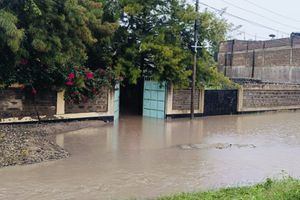Skilled workers needed in morgues, but few takers

Some of the delegates attending the 7th Annual Funeral Conference at Bliss Resort in Mombasa County on November 16, 2019. PHOTO | WACHIRA MWANGI | NATION MEDIA GROUP
What you need to know:
- Funeral Service Association of Kenya chairman Ezra Olaky says hundreds of workers needed.
- He also noted that Kenya also lacks training facilities for morticians.
- Stakeholders met for their 7th annual conference in Mombasa seeking to professionalise the industry.
Kenya is in dire need of morticians and morgue attendants, the sector stakeholders say.
Funeral Service Association of Kenya (FSAK) chairman Mr Ezra Olaky said that most of the labourers are unqualified casuals.
Mr Olaky stated that while the sector has grown, it suffers from a shortage of skilled workers.
“We have about 250 members in our association but there is still a shortage. We need close to 1,000 members to work in this sector. It is a huge one that requires more manpower,” he said.
He also noted that Kenya also lacks training facilities for morticians save from Chiromo, which has a three-month course for mortuary attendants.
“They (funeral homes) just want somebody who has worked in a mortuary, they have not pegged any minimum requirement or qualification. But we want to start with certificate and diploma holders. There is a gap that exists and we need to close it,” said Mr Olaky.
“We have a course outline and the institutions that are ready can adopt it and work with us. We know what we need and what to be trained on,” he said, adding that Moi Teaching and Referral Hospital in Eldoret also offers training.
He, however, called for partnership with FSAK.
OPPORTUNITIES
The chairman noted that while morticians face many occupational hazards such as exposure to infected blood and body fluids of verminous bodies, they operate in poor working environments and lack proper equipment.
He said morgues need to be well maintained with good ventilations and sufficient lighting.
“We came together to ensure that we professionalise this industry. This is the 7th annual conference and we are happy with the support and the kind of knowledge we acquire from other parts of the world. We want to change the narrative that you can just work as a mortician without any qualification. When employed, they are never told their job description. Most of them learn on the job,” Mr Olaky added.
He said that morticians can become funeral directors, embalmers or be specialists in restorative art.
“We are engaging the government and various institutions like Kenya Institute of Curriculum Development (KICD) and Technical and Vocational Education and Training (Tvet) so that we can have a syllabus for morticians because we have a training of mortuary science. This industry needs dedication, passion and discipline,” he said.
RECOGNITION
Established in 1995, the Funeral Services Association of Kenya seeks to assist in improvement of standards of service as well as ethics.
Mr Olaky said that most of the mortuary attendants lack of basic training and are usually unrecognised for their work.
“We are aware that they are playing a key role and should be respected. Working as morticians should not be seen as a punishment as it is being perceived. We need to be recognised as a professional body just like other cadres in hospitals,” he added.
He said that the association is helping morticians advance their career by offering educational opportunities.
He pointed out that the funeral industry has plenty of employment opportunities including software developers for funeral information technology, accountants, among others.
The conference, held in Mombasa at the weekend, attracted morticians, pathologists and funeral service practitioners from across Kenya, South Africa, Botswana, Zimbabwe, US and Uganda.





